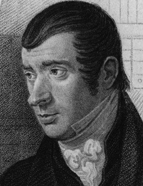

For José Liberato, the historical figures embody diametrically opposed moral and political principles, symbolising civilisation and savagery, progress and decadence. It is not only the figures of Subserra (in Ensaio politico [Political essay] ) and Palmela (in Memórias … [Memoirs] ) who seek to manoeuvre or control the ideological interests grouped around D. Carlota Joaquina and D. Miguel, gradually allowing themselves to be entangled in a strategic web over which they will both lose control – which will mean the imprisonment and death of Subserra and the exile of Palmela (even under Chartism). It is a whole political game of characters from the first, second and third lines – among them Saldanha, Silva Carvalho, Rodrigo da Fonseca, D. Pedro IV, and Liberato himself – who move in a truly fascinating but obscure theatre of shadows. José Liberato does so according to the dictates of Cornelius Tacitus in his Annals , each one recounting the abuses and follies of imperial dynasties (that of Augustus and the Luso-Brazilian one) and their respective cliques.
In this and other works, José Liberato purposely uses the blurred concepts of essay – Ensaio histórico-político sobre a constituição e governo de Portugal [Historical and Political essay on the constitution and government of Portugal] (1830) – and memoir – Memórias com o título de anais para a história do tempo que durava a usurpação [Memoirs with the title of annals for the history of the time the usurpation lasted] (from 1841-43). Thus, he recognises his own scientific unpreparedness for the construction of a solid and methodical (albeit documented) historical discourse , his nature as a passionate and intervening witness , and his role as a philosopher reflecting on a troubled or bloody era, in the wake of Voltaire and Tacitus.
A man of neoclassicism and pre-romanticism, a classicist like António Feliciano de Castilho and José Agostinho de Macedo, a conspirator and revolutionary like the men of the Sanhedrin and the friends of D. Pedro, José Liberato Freire de Carvalho drank from the sources of Antiquity and the methods of the Academia das Ciências de Lisboa [Lisbon Academy of Sciences] to produce an immediatist history, like José Acúrsio das Neves and Garção Stockler, not always exempt from a functional historical vision, of criticism and polemic s .
This work is financed by national funds through FCT - Foundation for Science and Technology, I.P, in the scope of the projects UIDB/04311/2020 and UIDP/04311/2020.
